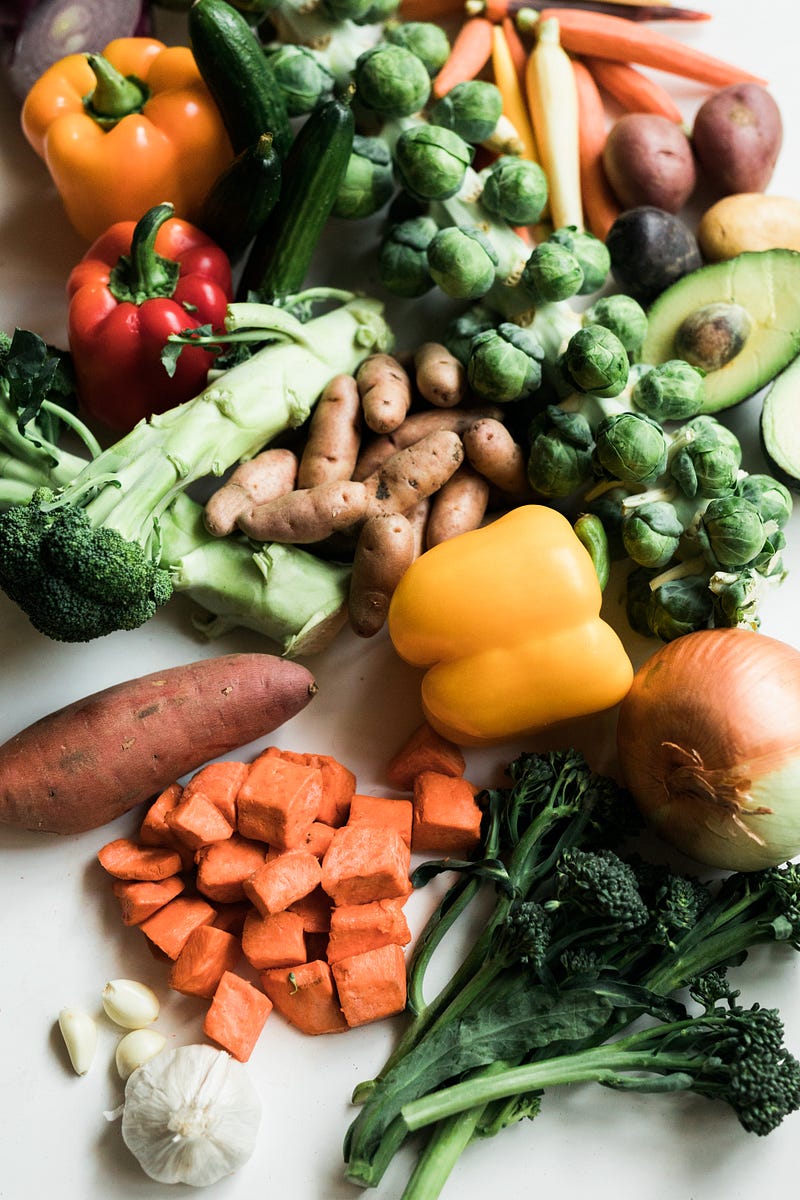Understanding Vegetarian Growth in Children: The Current Evidence
Written on

As a parent of a 3-year-old, I often find myself reflecting on his growth. Standing proudly beside his height mark, he exclaims, "I’ve grown!" Despite my height — nearly 6ft 1 (1m 85) — I can't help but worry as our son's growth charts consistently show he is shorter than expected for his age.
Being an amateur nutritionist and an enthusiastic home cook, I began to wonder if his vegetarian diet was influencing his growth. My primary question: do vegetarian children grow as much as their meat-eating peers?
Beyond ethical and health motivations, many are adopting vegetarianism for its numerous benefits, such as lower obesity rates and increased resistance to certain diseases. A 2021 study involving 166,000 individuals in the UK found that vegetarians showed better results across various health markers. However, most research focuses on adults rather than children.
With the rise of vegetarianism and veganism (about 7-8% of US millennials), parenting practices are shifting too. Influential organizations like the USDA endorse vegetarian diets as healthy options, claiming they are suitable for all life stages, including childhood and adolescence. They even suggest these diets can help prevent and treat specific health issues.
Yet, as I watch my son’s excitement, I ponder whether my concerns are justified.
Are There Growth Concerns for Vegetarian Children?
When discussing growth, I refer to both physical aspects (like height and bone density) and cognitive development. A comprehensive 2019 review analyzed nearly 50 studies on vegetarian diets among children and found that overall, their physical development is comparable to that of omnivorous children.
The conclusion? Both vegetarian and omnivore children grow at similar rates. However, there are some distinctions worth noting. The review indicated that vegetarian children might weigh less, have lower BMIs (especially among teens), and perform slightly worse in strength tests, yet they tend to excel in endurance. Additionally, their diets often include fewer sugary foods and more fiber but less protein.
These findings should be approached cautiously. Vegetarian families often belong to higher socio-economic groups with healthier lifestyles, which can mask potential dietary drawbacks. My own reflection on our family's health reinforces this idea: while my son appears to be developing well, I remain vigilant about his nutritional intake.
Furthermore, Dr. Nathan Cofnas raised concerns about the limited studies on children and vegetarianism, urging caution in adhering to guidelines from the USDA and other organizations. The real challenge lies in ensuring vegetarian diets adequately support children's growth.
Ensuring a Balanced Vegetarian Diet for Children
A well-planned vegetarian diet can meet the nutritional needs necessary for healthy growth and development. However, there are essential considerations to keep in mind.
Addressing Nutritional Deficiencies
Vegetarian diets may lack critical nutrients, such as protein, iron, omega-3 fatty acids, vitamin B12, vitamin D, and zinc. Deficiencies in these areas can hinder growth and cognitive development. Parents must ensure a diverse intake of foods, incorporating beans, lentils, nuts, and seeds alongside dairy for protein.
Understanding Bioavailability
Even when nutrient intake appears adequate on paper, absorption rates can vary. For instance, plant-based iron has significantly lower bioavailability than iron from meat sources. To enhance absorption, pairing iron-rich meals with vitamin C can be beneficial.
Mitigating Anti-Nutrients
Certain compounds, known as anti-nutrients, can inhibit nutrient absorption. Foods like grains and nuts contain these substances. Soaking nuts and seeds can help neutralize anti-nutrients and improve digestibility.
While these concerns may seem daunting, the overarching principle for vegetarian families is variety. A diverse diet exposes children to a wide range of nutrients, fostering healthy growth and development.
In our household, my wife is transforming our garden into an allotment, cultivating a variety of vegetables. We also explore different cuisines, enriching our son's dietary experience and ensuring he enjoys a diverse array of foods.
Conclusion: The Evidence on Vegetarian Growth
Reflecting on my son's growth, I see his enthusiasm and energy. Cooking together has become a cherished father-son activity, and I believe he has developed a healthier relationship with food than I did in my early years as an omnivore.
Concerns about vegetarian diets for children often stem from misconceptions. While occasional doubts about his diet linger, evidence suggests that vegetarian children can grow just as well as their omnivore counterparts. Emphasizing variety and nurturing a love for cooking are key components in ensuring he thrives.
As I assess his progress, I am reassured. Perhaps my worries are unfounded, and my son is on his way to becoming a healthy, happy child.
© Jamie D Stacey 2021
Disclaimer: This article reflects my personal experiences with raising a vegetarian child. Vegan diets, while potentially more restrictive, are not typically recommended for very young children. Always consult a qualified healthcare professional for dietary concerns.
Related stories:
Science Says Kissing Your Child’s ‘Boo-Boos’ Actually Works
Yes, according to science, the ‘magic kiss’ can help cuts and scrapes heal faster thanks to our saliva.
Science Says Babies Are Now Likely Harmed in the Womb with Microplastics
There has to be some hope — as a father, that’s what I’m choosing to fight for.
Let’s Talk About Sperm Health — And Your Chances of Being a Dad
From one dad to others who want to be.